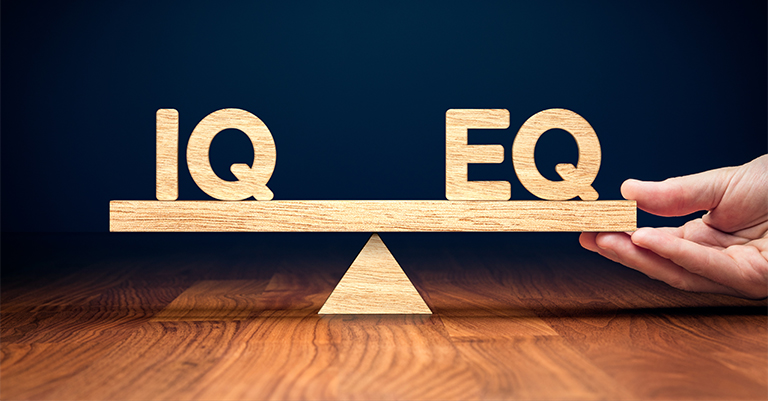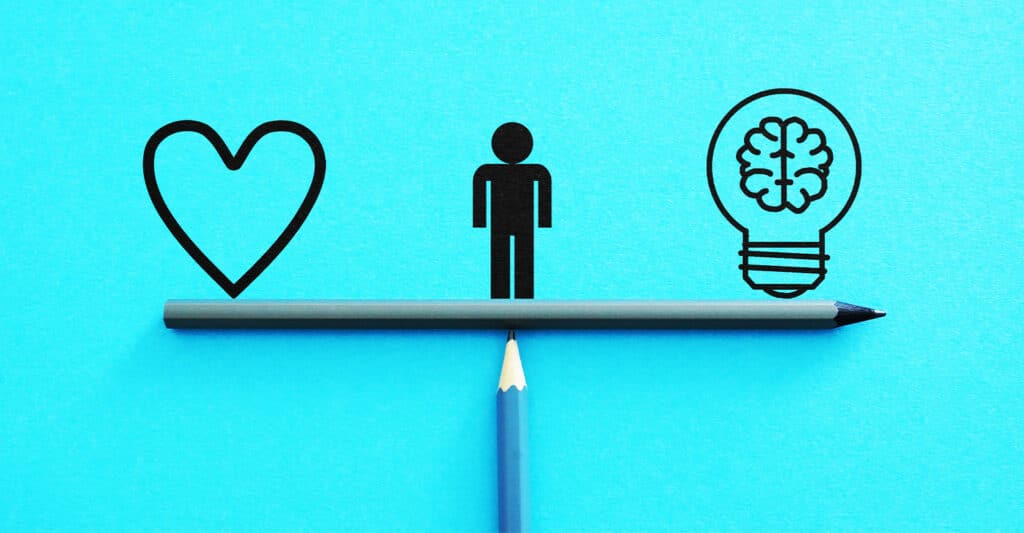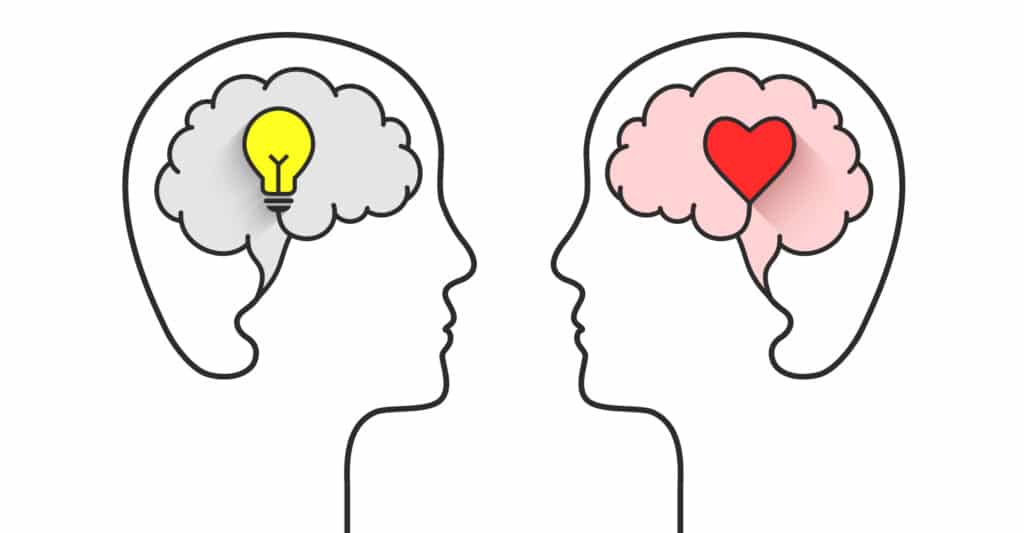Emotional intelligence (EQ) is all about understanding and managing emotions. It helps you connect with others and handle challenges. By improving your emotional intelligence skills, you can strengthen your mind and become more confident. It plays a crucial role in personal and professional life. If you know how to control your emotions, you can deal with stress better and build stronger relationships.
What is Emotional Intelligence?

Emotional intelligence means understanding your feelings and the emotions of others. It has four key parts: self-awareness, self-management, empathy, and social skills. Self-awareness means knowing your own emotions and how they affect your behavior. Self-management is about controlling your emotions in stressful situations. Empathy involves recognizing what others feel, while social skills help you build positive relationships. Each part of emotional intelligence helps you connect with others and manage emotions better. Developing these skills makes it easier to succeed at work, school, and home.
Why Emotional Intelligence Matters for Empowering Your Mind
Strong emotional intelligence can improve many areas of life. It helps you handle stress, make better decisions, and build healthier relationships. When you understand your emotions, you can control your reactions instead of letting them control you. This can lead to better problem-solving skills and improved focus. Emotional intelligence also helps in understanding others’ feelings, which is valuable for teamwork. It enables you to communicate clearly and avoid misunderstandings. People with high emotional intelligence tend to be more positive, confident, and resilient, which contributes to better mental well-being.
Self-Awareness: The Foundation of Emotional Intelligence
Self-awareness means paying attention to your emotions and recognizing how they affect your actions. It is the foundation of emotional intelligence. When you understand your emotions, you can respond to situations with clarity. A simple way to practice self-awareness is by keeping a journal. Write down your feelings each day and what might have triggered them. This helps you see patterns in your emotions. Mindfulness exercises also support self-awareness. Take a few minutes daily to focus on your breathing and notice how you feel. By practicing self-awareness, you gain better control over your reactions.
Self-Management: Controlling Your Reactions

Self-management helps you keep your emotions in check, even during stressful times. It’s about staying calm when things don’t go as planned. To improve self-management, try deep breathing when you feel overwhelmed. This technique helps slow your heart rate and calms your mind. Another tip is taking a short break before reacting to a situation. This gives you time to think and respond wisely. Self-management also means setting goals for how you want to handle certain emotions. For example, if you get upset easily, practice pausing before you react. These methods help keep your emotions under control.
Empathy: Understanding Others’ Emotions
Empathy is the ability to understand how others feel. It’s an essential part of emotional intelligence because it helps you build stronger connections. When you practice empathy, you show others that you care about their feelings. To improve your empathy, listen carefully when someone is speaking. Don’t just hear their words; pay attention to their tone and body language. Ask questions like, “How did that make you feel?” This shows that you’re interested in their perspective. Volunteering can also boost empathy by exposing you to different life experiences. Practicing empathy helps create deeper relationships and makes others feel valued.
Social Skills: Building Stronger Relationships
Good social skills make it easier to interact with others and build meaningful connections. These skills are crucial in both personal and professional settings. One way to improve social skills is by practicing active listening. This means focusing fully on the speaker and not interrupting them. Try asking open-ended questions in conversations to show interest and keep the dialogue going. Being able to manage conflicts calmly is another important social skill. When disagreements arise, stay calm and look for a solution that works for everyone. Developing strong social skills helps you become a better team player and a more understanding friend.
Tips to Improve Your Emotional Intelligence

Improving your emotional intelligence can lead to better relationships, increased resilience, and a more positive outlook. It may seem challenging at first, but it becomes easier to manage emotions and understand others with consistent practice. Here are some effective tips to enhance your emotional intelligence:
Practice Mindfulness
Mindfulness helps you become more aware of your thoughts and feelings in the present moment. It encourages you to observe your emotions without judgment, which can reduce stress and improve self-awareness. Start with simple mindfulness exercises, like focusing on your breathing for a few minutes each day. This practice helps you stay calm during difficult situations and improves your ability to respond thoughtfully.
Keep a Journal
Writing in a journal is a great way to reflect on your emotions and understand why you feel a certain way. Each day, take a few minutes to jot down your thoughts, feelings, and any challenges you faced. Note how you reacted and how you could have handled the situation differently. Over time, you will notice patterns in your emotions and learn to manage them better. Journaling also helps you track your progress as you work on your emotional intelligence.
Seek Feedback from Others
Sometimes, we may not see how our emotions affect those around us. Seeking feedback from trusted friends, family, or colleagues can provide valuable insights. Ask them how they perceive your reactions in different situations and where you might improve. Be open to their suggestions and use them as a guide for growth. Constructive feedback helps you understand your strengths and areas that need more attention.
Practice Gratitude

Focusing on what you are grateful for can shift your mindset from negative to positive. Gratitude helps you appreciate the good things in life, which can improve your mood and reduce stress. Try writing down three things you are thankful for each day. This practice encourages you to focus on positive emotions, making it easier to manage difficult situations. It also helps you recognize the support and kindness of others, which can strengthen your relationships.
Learn to Pause Before Reacting
When emotions run high, it’s easy to react impulsively. Taking a brief pause before responding allows you to think about the situation more clearly. It can prevent you from saying or doing something you might regret later. Practice taking a few deep breaths or counting to five before reacting to challenging situations. This small habit can make a big difference in managing your emotions and responding with intention.
Develop Empathy Through Active Listening
Empathy is a core part of emotional intelligence, and you can build it by actively listening to others. When someone speaks to you, focus entirely on their words, emotions, and body language. Show that you are listening by nodding or asking follow-up questions. This not only helps you understand their feelings but also shows that you value their perspective. Over time, this practice can deepen your relationships and improve your ability to connect with others.
Set Emotional Goals
Just like any other skill, emotional intelligence can be improved by setting specific goals. Think about areas where you want to grow, such as managing stress or being more empathetic. Create simple, actionable steps for each goal. For example, if you want to remain calm under pressure, you might aim to practice deep breathing for five minutes each day. Having clear goals helps you stay focused on your progress and keeps you motivated as you work toward better emotional balance.
Improving your emotional intelligence is a journey, not a race. By taking these small steps daily, you’ll see a positive shift in how you manage your emotions and interact with others. Over time, these changes can lead to a happier, more balanced life.
Closing Thoughts

Building emotional intelligence is a valuable skill that can transform your life. It’s not about changing who you are but rather learning to understand and manage your emotions more effectively. By focusing on self-awareness, you can recognize your emotional triggers and understand how they influence your actions. Through self-management, you gain the ability to stay calm and make better decisions, even when facing challenges. Empathy allows you to connect with others on a deeper level, creating stronger, more meaningful relationships. Lastly, improving your social skills can help you communicate clearly and work well with others.
It’s important to remember that developing emotional intelligence takes time. You don’t need to be perfect; just strive for progress each day. Start with small steps, like practicing mindfulness, keeping a journal, or seeking feedback from those you trust. Over time, these efforts will add up and help you become more in tune with your emotions and those around you.
A higher level of emotional intelligence doesn’t just benefit you—it also positively impacts your relationships at home, work, and beyond. It makes you more adaptable, understanding, and resilient in the face of stress or conflict. By being aware of how you feel and how others feel, you can build a more compassionate and empathetic world around you. Remember, emotional intelligence is like a muscle—it gets stronger with practice. Embrace the journey, celebrate your progress, and be patient with yourself along the way. As you grow in emotional intelligence, you’ll find yourself facing life’s challenges with greater confidence and clarity, leading to a more fulfilling and balanced life.




